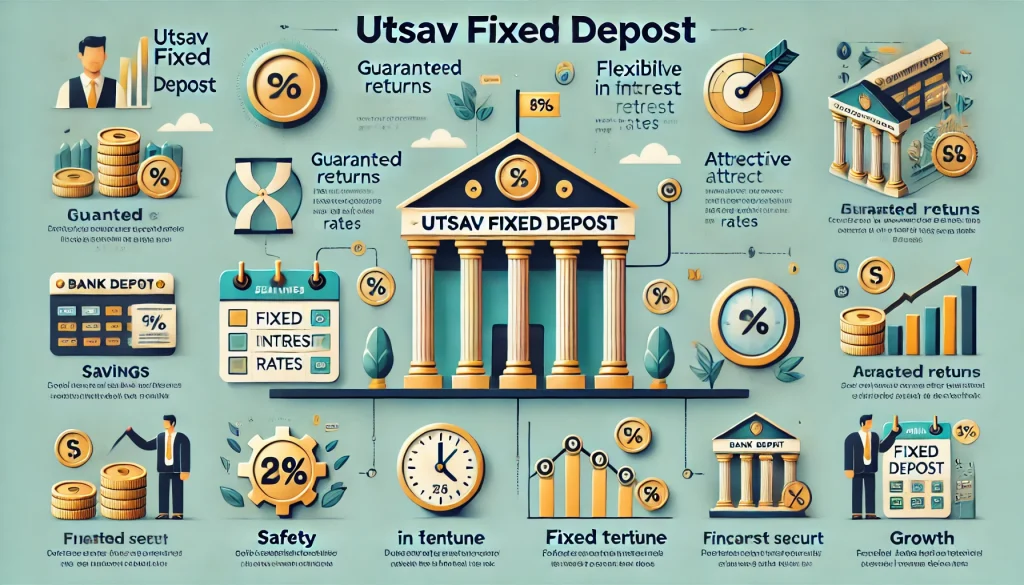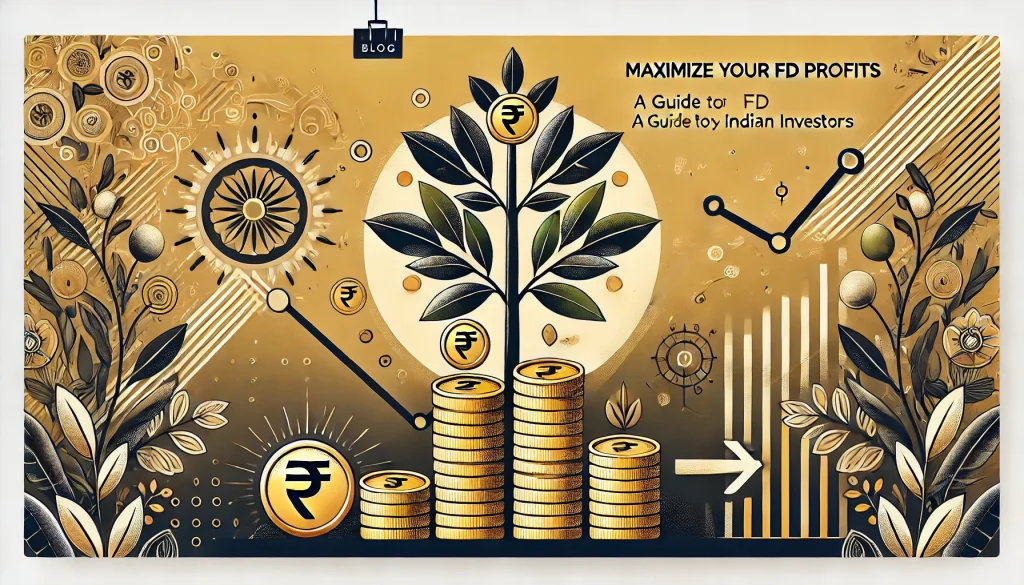
In the realm of financial planning, fixed deposits (FDs) have long been a favoured investment choice for risk-averse individuals. They offer a secure and predictable way to grow savings while earning a fixed interest rate. Among the various types of FDs available, non-cumulative fixed deposits stand out for their unique characteristics and suitability for specific financial needs. In this article, we will explore the concept of non-cumulative FDs, their features, who should invest in them, the necessary documents required, and essential factors to consider before investing. So, let’s dive in!
What is Non-cumulative FD?
A non-cumulative fixed deposit is a type of term deposit offered by banks and financial institutions that provides periodic interest payouts to the depositor. Unlike cumulative FDs, where the interest is compounded and paid at maturity, non-cumulative fixed deposits distribute interest earnings at regular intervals – monthly, quarterly, half-yearly, or annually, as per the investor’s choice. These interest payouts can be an excellent source of stable income for individuals, especially retirees, who rely on a steady cash flow.
Features of Non-cumulative Fixed Deposits
1. Flexible Interest Payouts
Non-cumulative fixed deposits offer flexibility in selecting the frequency of interest payouts. Investors can choose the payout interval based on their financial requirements, making it suitable for both short-term and long-term financial goals.
2. Predictable Returns
With fixed interest rates, non-cumulative fixed deposits provide predictable returns over the investment tenure. Investors can calculate the expected earnings in advance, enabling better financial planning.
3. No Compounding Effect
Since the interest is not reinvested, non-cumulative FDs do not benefit from compounding. However, the advantage lies in the regularity of interest income, which can be especially helpful for covering monthly expenses.
4. Loan against FD
Non-cumulative FDs can also serve as collateral for availing loans. Banks often offer loans at favourable terms against such fixed deposits, providing liquidity while keeping the investment intact.
5. Wide Range of Tenures
Non-cumulative FDs come with various tenures, ranging from a few months to several years, allowing investors to align their investments with their financial goals.
Who Should Invest in a Non-cumulative FD?
Non-cumulative fixed deposits are well-suited for specific individuals seeking stable returns and regular income. Here are some ideal candidates for investing in non-cumulative fixed deposits:
1. Retirees and Senior Citizens
Retirees and senior citizens often rely on fixed deposits as a primary source of income during their post-retirement phase. Non-cumulative FDs provide periodic interest payments, supporting their day-to-day expenses and ensuring financial security.
2. Individuals with Short-Term Goals
If you have short-term financial goals or need a stream of income for a specific period, non-cumulative FDs can be an effective investment option. It provides steady interest earnings without committing funds for an extended period.
3. Risk-Averse Investors
Investors who prioritise capital preservation over higher returns and are risk-averse in nature may find non-cumulative FDs appealing. The assurance of fixed returns without market fluctuations can provide peace of mind.
Documents Required for Non-cumulative FD
Opening a non-cumulative fixed deposit account is a straightforward process. However, like any financial transaction, it requires some essential documentation. The following documents are typically required to open a non-cumulative FD account:
- Proof of Identity: Valid government-issued photo ID such as an Aadhaar card, passport, or driver’s license.
- Proof of Address: Documents like utility bills, ration cards, or bank statements that confirm your residential address.
- PAN Card: Permanent Account Number (PAN) card is mandatory for transactions exceeding a certain limit.
- Passport Size Photographs: 2 or more recent passport-sized photographs are required for KYC verification.
Things to Remember Before Investing in Non-cumulative FD
Before you invest in a non-cumulative fixed deposit, consider the following factors to make an informed decision:
- Interest Rate: Compare interest rates offered by different banks and financial institutions to ensure you get the best possible return on your investment.
- Payout Frequency: Choose the interest payout frequency that aligns with your financial needs, whether it’s monthly, quarterly, half-yearly, or annually.
- Tax Implications: Keep in mind that the interest earned from FDs is taxable. Consider the tax implications while calculating the actual returns.
- Penalty for Premature Withdrawal: In any emergency or a sudden financial requirement, premature withdrawal of a non-cumulative FD might attract penalties. Familiarise yourself with the terms and conditions to avoid any unwelcome surprises.
- Diversification: While non-cumulative FDs offer safety, it’s essential to diversify your investment portfolio to optimise returns and manage risk effectively.
Conclusion
Non-cumulative fixed deposits are a reliable and popular investment option for Indian users seeking stable returns and regular income. With flexible interest payouts, predictable returns, and a wide range of tenures, they cater to the diverse needs of investors. Before investing, ensure you have the necessary documentation and consider important factors like interest rates, tax implications, and penalties for premature withdrawal. While FDs provide safety, diversifying your investment portfolio can offer better financial stability and growth opportunities.
FAQs
Yes, non-cumulative FDs offered by reputable banks and financial institutions are considered safe as they guarantee fixed returns.
Yes, premature withdrawal is possible, but it may attract penalties as per the bank’s terms and conditions.
The minimum deposit amount varies from bank to bank, ranging from a few thousand to a few lakhs.
Yes, you can avail of a loan against your FD, as it serves as collateral for the loan.
Yes, the interest earned from FDs is taxable under the Income Tax Act.
Disclaimer
This article is solely for educational purposes. Stable Money doesn't take any responsibility for the information or claims made in the blog.


